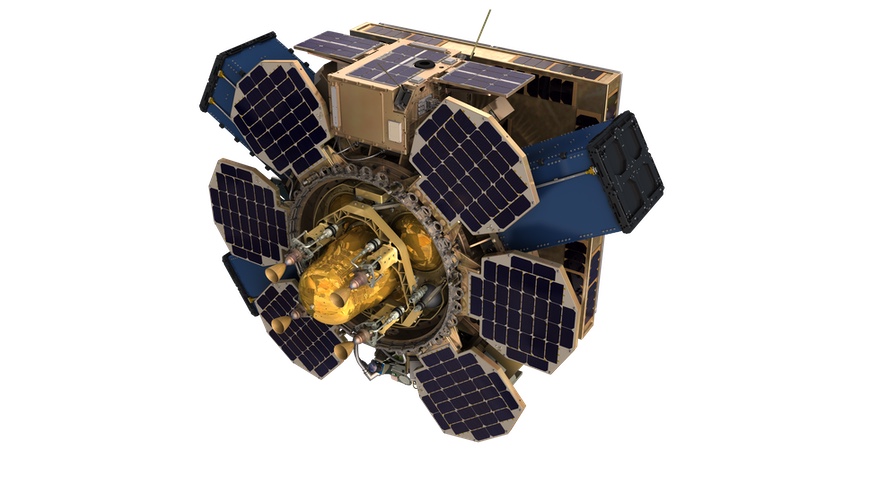
BREMEN, Germany — European space officials are stressing a need for greater autonomy and sovereign capabilities going forward in the wake of geopolitical trends and developments.
“Europe is already a very large space power, but it can even become better in the sense that Europe has strong capabilities in every sector but lacks autonomy independence in some parts,” said Gerldine Naja, the European Space Agency’s Director of Commercialization, Industry and Procurement, a keynote speaker at the opening of the industry conference at the Space Tech Expo Europe in Bremen, Germany, Nov. 15.
“We have to focus on ensuring full European autonomy in space as well as investing more in commercial growth areas,” Naja added.
Naja touched on a number of areas in which Europe needs to boost its independence, including exploration, for which requires nuclear power sources for long duration missions in deep space.
The matter of space transportation was stated to be critical. “There is no space policy without an autonomous launcher capability,” Naja said. “And Europe has to strengthen and maintain this autonomy. This is crucial.”
“I believe that we are at the start of a new era for launches in Europe, with a higher focus on commercial launch services. And ESA must follow this trend.”
The policy push for autonomy and independence is being addressed at all levels.
“I mentioned the need for European independence. It is clear that this applies also to European components,” Naja said, adding that the EEE initiative—which seeks to secure the availability of suitable, reliable and cost-effective electrical, electronic and electro-mechanical components—will ensure European sovereignty and independence.
The same theme was echoed in a later keynote panel. Jean-Marc Astorg, director of strategy at French space agency CNES, spoke about the importance and opportunities presented by constellations.
“We need sovereignty for secure connectivity in Europe,” Astorg said, referring to a proposed broadband constellation. He added that ESA and the European Commission have done a good job of coming together to propose several configurations of secure connectivity.
“It’s important to have this system, which must be available as soon as possible. But it’s important, from my point of view, to show that the European public sector is capable to solve its inherent difficulties to develop a system.”
The EU secure connectivity program will be one of many packages on the table at next week’s ESA ministerial meeting, as will advanced technologies, including many related to competitiveness.
These moves are linked to long term trends but are also being advanced by more recent and acute developments.
“Autonomy and sovereignty are some of the underpinning elements of EU thinking that have been there for a few years already. But I would say that the global and geopolitical developments, especially in the wake of Russia’s war on Ukraine, have strongly accelerated this,” Tomas Hrozensky, a researcher at the European Space Policy Institute (ESPI), told SpaceNews.
“Europe is trying to send a message to the world that it is one of the global space powers but indeed it has an issue with not actually having sovereign capabilities that you think are associated with that,” Hrozensky says, noting dependence on some subcomponents.
“So it’s really something where the European Union comes into play and I think it’s associated with a broader trend of geopolitical awareness of the EU.”
Note: This article have been indexed to our site. We do not claim legitimacy, ownership or copyright of any of the content above. To see the article at original source Click Here













